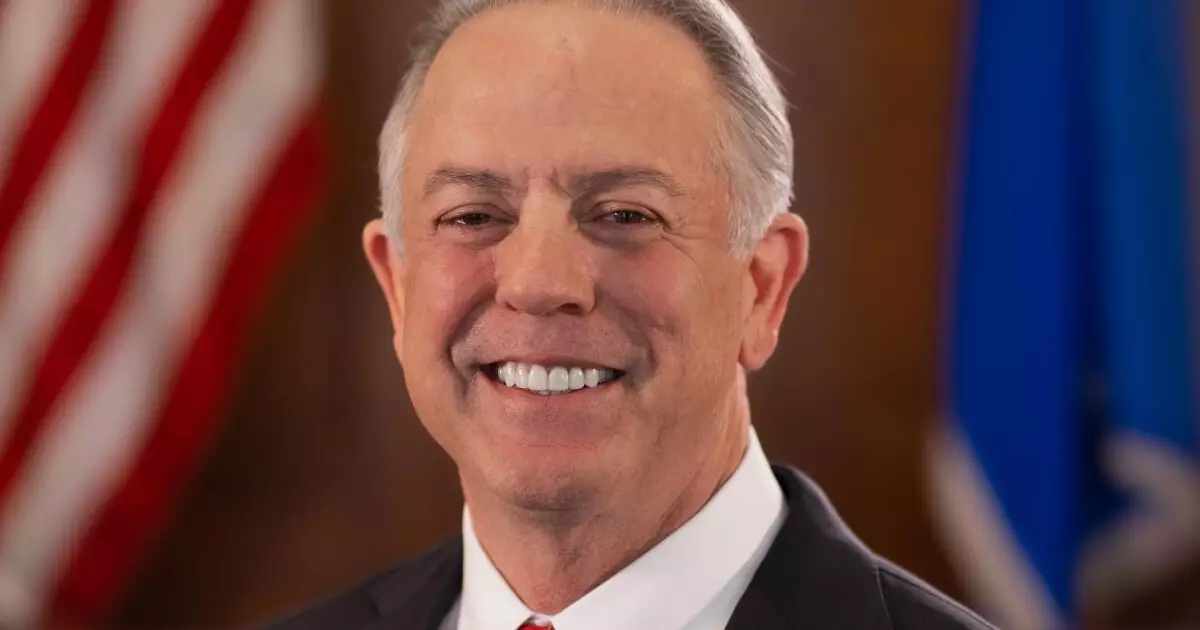In an unexpected move just days before Nevada’s legislative session commenced on February 3, Governor Joe Lombardo took the decisive step of replacing his budget chief. Lombardo, a Republican who has been navigating the intricacies of governance since his election in 2022, appointed Tiffany Greenameyer as the new director of the Governor’s Office of Finance, filling the role previously held by Amy Stephenson. This shift in leadership surfaced amidst rising tensions as Lombardo’s proposed budget came under intense scrutiny from both sides of the political spectrum.
Greenameyer, who had extensive experience in fiscal management within state agencies, was brought in with the hope that her background could remedy the criticisms levied at the administration. Lombardo praised her deep expertise in budget and fiscal matters, positioning her as a vital asset in steering the state’s finances during a particularly contentious time.
The backdrop to this leadership change is a contentious budget proposal that has ruffled feathers in the Nevada legislature. Lombardo’s $12.7 billion budget is marred by the assertion that it would create a deficit of $335 million, a matter that Senate Majority Leader Nicole Cannizzaro has publicly denounced. Citing a constitutional mandate that requires a balanced budget, Cannizzaro expressed her apprehension about the potential implications of this proposal for the state’s fiscal health.
Her concerns are not unfounded; the state government has faced this enduring issue of budget balance under a divided legislature since the last election, which retained Democratic control over both legislative chambers. Cannizzaro’s critique serves as a precursor to a legislative session that promises to be marked by tension and heated debates about fiscal discipline and transparency within state governance.
The Legislative Process: Balancing Budgets and Interests
In Nevada, where the legislature only meets for a 120-day session every two years, the urgency for fiscal prudence is amplified. Lawmakers are charged with the monumental task of crafting a biennium budget within a relatively short timeframe, which can complicate efforts to address competing community needs. The legislative calendar culminates in a budget decision by June 2, creating substantial pressure on all sides involved.
Lombardo’s proposed budget represents a notable 9% increase compared to the previous budget. He intends to allocate significant resources to areas such as enhanced pay for teachers, infrastructure development in housing, and crime prevention programs. The governor also cited a record-high reserve fund of $1.3 billion, leveraging this figure to argue for expanded expenditures. Yet, this raises critical questions regarding financial sustainability and long-term economic strategy in the face of a looming deficit.
The path forward will undoubtedly necessitate robust negotiations and compromise across party lines. The first order of business typically involves the passage of the K-12 education budget, followed by funding for state agencies and capital improvements. The discussions will need to cultivate a consensus—an undertaking that demands not only financial acumen but also an understanding of the broader socioeconomic implications of budgetary decisions.
Furthermore, the significance of Nevada’s general obligation bonds, which are consistently rated AA-plus, underscores the importance of maintaining fiscal credibility to attract investment and ensure public confidence in economic governance.
As legislators prepare for a prolonged battle over budget priorities, the stakes are high. The dynamic interplay between the executive and legislative branches in Nevada will determine not just the state’s fiscal stability, but also the broader implications for its residents and institutions. Lombardo’s initial foray into budget proposals will face rigorous examination, and the leadership transition may just be the first of many steps required to forge a balanced and sustainable fiscal future for Nevada.
Governor Lombardo’s administrative changes and proposed budget serve as a crucial crossroad for Nevada’s governance. The preparation for the legislative session reveals underlying tensions within the fiscal landscape, requiring expedited yet thoughtful discourse. All eyes will remain on the interactions within the legislature as stakeholders strive to uphold Nevada’s constitutional requirements while addressing the pressing needs of a diverse population amidst a complex financial backdrop.

